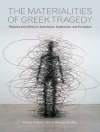The Years Virginia Woolf – The most popular of Virginia Woolf’s novels during her lifetime, first published in 1937, ‘The Years’ is a savage indictment of British society at the turn of the century.’The Years’ is the story of three generations of the Pargiter family – their intimacies and estrangements, anxieties and triumphs – mapped out against the bustling rhythms of London’s streets during the first decades of the twentieth century. Growing up in a typically Victorian household, the Pargiter children must learn to find their footing in an alternative world, where the rules of etiquette have shifted from the drawing-room to the air-raid shelter. A work of fluid and dazzling lucidity, ‘The Years’ eschews a simple line of development in favour of a varied and constantly changing style, emphasises the radical discontinuity of personal experiences and historical events. Virginia Woolf’s penultimate novel celebrates the resilience of the individual self and, in her dazzlingly fluid and distinctive voice, she confidently paints a broad canvas across time, generation and class.Virginia Woolf (1882-1941) is regarded as a major 20th century author and essayist, a key figure in literary history as a feminist and modernist, and the centre of ‘The Bloomsbury Group’. This informal collective of artists and writers which included Lytton Strachey and Roger Fry, exerted a powerful influence over early twentieth-century British culture. Between 1925 and 1931 Virginia Woolf produced what are now regarded as her finest masterpieces, from ‘Mrs Dalloway’ (1925) to the poetic and highly experimental novel ‘The Waves’ (1931). She also maintained an astonishing output of literary criticism, short fiction, journalism and biography, including the playfully subversive ‘Orlando’ (1928) and ‘A Room of One’s Own’ (1929) a passionate feminist essay.
Circa l’autore
Adeline Virginia Woolf (/wlf née Stephen; 25 January 1882 28 March 1941) was an English writer, considered one of the most important modernist 20th-century authors and also a pioneer in the use of stream of consciousness as a narrative device.Woolf was born into an affluent household in South Kensington, London, the seventh child in a blended family of eight which included the modernist painter Vanessa Bell. Her mother was Julia Prinsep Jackson and her father Leslie Stephen. While the boys in the family received college educations, the girls were home-schooled in English classics and Victorian literature. An important influence in Virginia Woolf’s early life was the summer home the family used in St Ives, Cornwall, where she first saw the Godrevy Lighthouse, which was to become central to her novel To the Lighthouse (1927).












